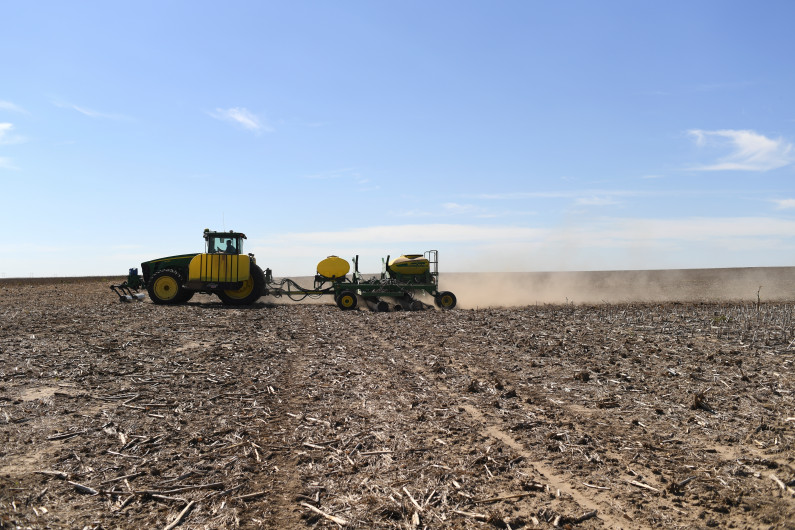Denver Post: Colorado farmers and ranchers are struggling — and it can take a big mental toll

RJ Sangosti, The Denver Post
Ryan Fix plants winter wheat in a field, at his family’s farm on Sept. 27, 2018 in Wray.
by Judith Kohler | October 3, 2018
Fellow farmers, state agriculture officials identify available resources
Mike Nolan and Mindy Perkovich have had good years and not-as-good years since starting Mountain Roots Produce in southwest Colorado’s Mancos Valley about five years ago. They have built their business selling vegetables to area restaurants and about 75 individual customers through a community-supported agricultural model.
They have adapted and worked hard. Now Nolan is wondering if that’s enough. They produced only an acre and a half of vegetables this season, compared to their usual seven acres. Nolan and Perkovich were among many Colorado farmers and ranchers who had their irrigation water eventually shut off this growing season as supplies dropped during the state’s fourth-driest year in 123 years of record-keeping.
“I just don’t know how to be resilient with our minds and our hearts and emotions,” Nolan said. “It’s emotionally taxing.”
Norm Dalsted, a Colorado State University professor and farm/ranch management economist, is among those working with farmers and ranchers and others in the agriculture community to make sure they know help is available.
“I grew up on a ranch in North Dakota, and I was taught to be tough. If you’ve got problems, you take care of them,” Dalsted said. “I see that every day working with farmers and ranchers across the state.”
Farmers and ranchers are resilient, Dalsted said, but might be reluctant to seek counseling, especially in a small town where most people know each other. Those willing to seek help might have nowhere nearby to go.
Every rural county in Colorado has a shortage of mental health professionals, according to the Colorado Department of Public Health and Environment. The Colorado Health Institute’s Colorado Health Access Survey released in April found that a number of factors affect people’s access to care, but that many rural areas are struggling with shortages of mental health providers.
In addition to working directly with farmers and ranchers, Dalsted makes presentations during workshops for lenders on tax reforms, marketing and commodity prices. This fall, his materials will include information on signs of stress and “stressors,” events or problems that can aggravate the situation, and key signs of mental health problems.
“Agriculture lenders are key in identifying farmers and ranchers having problems. They are key contact points,” Dalsted said.
Workshops held in August on the Western Slope provided information on resources, including financial and personal, available to ranchers coping with the drought and a tough agricultural economy. Janie VanWinkle, a Mesa County rancher and member of the Colorado Cattlemen’s Association board of directors, said it is good for people to know they’re not the only ones going through difficult times.
“We tend to get a little isolated in what we do. It’s important to understand that it’s nothing we have done. It’s just the way it is,” VanWinkle said. “It’s important coming together with neighbors and people from other counties to realize we’re all struggling.”
Below are some of the resources available to Colorado farmers and ranchers:
Colorado State University Extension, Managing Stress During Tough Times: http://extension.colostate.edu/topic-areas/family-home-consumer/managing-stress-during-tough-times-10-255/
Colorado Department of Agriculture, Ag Financial Crisis: https://www.colorado.gov/pacific/agmain/ag-financial-crisis
Colorado Crisis Services: telephone, 844‐493‐TALK (8255); or text TALK to 38255